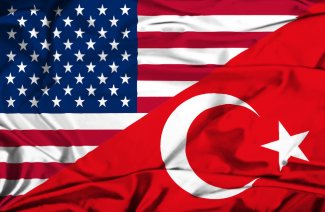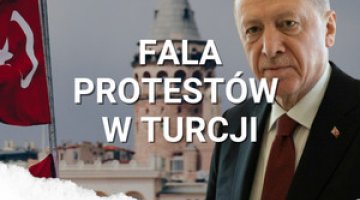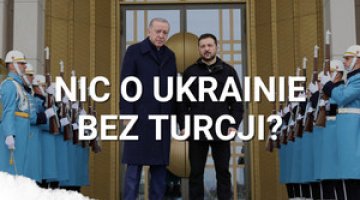Turkey-US: a diplomatic storm around an imprisoned clergyman

On 1 August, the US Treasury Department imposed sanctions on two Turkish ministers, those with the portfolios of internal affairs and justice. The politicians have been banned from entering the territory of the United States, have had their assets frozen, and US businesses have been prohibited from concluding any transactions with them. This is a response to the detention in Turkey (since October 2016) of the American Presbyterian pastor Andrew Brunson on charges of cooperating with the Gülen movement (which Ankara accuses of organising the failed coup d’état of July 2016) and the terrorist Kurdistan Workers’ Party (PKK). Washington’s decision met with a sharp response from the Turkish government; on 4 August, President Recep Tayyip Erdoğan announced a symmetrical response covering the heads of the relevant US government departments. A day earlier, both countries’ heads of diplomacy discussed the matter in Singapore during the ASEAN summit.
Commentary
- The relationship between Turkey and the US remains strained. For two years Ankara has been calling for the extradition of Fethullah Gülen, who was allegedly behind the attempt to overthrow the government. The American clergyman’s arrest was probably one element of an attempt to bring pressure to bear on Washington. Now the authorities in Ankara have realised that they cannot count on Gülen being extradited, and so they are trying at least to bring back Hakan Atilla, the former head of Halkbank, who has been sentenced by an American court for evading sanctions on Iran (Turkish sources report that the US was supposed to have returned Atilla to Turkey, but has not followed through). President Donald Trump intervened personally to Erdoğan on the Brunson affair, although this has so far not brought the expected results; the Turkish court decided just to transfer the clergyman from police custody to house arrest.
- The Turkish-American relationship has long been determined by various conflicts of interest. Ankara sees the US’s activity in northern Syria (where the US supports the Kurdish militias) as a threat to the Turkish raison d’état. This case, along with the US’s failure to agree to extradite Gülen, means that the country is perceived in Turkey as the ally of its greatest enemies. For its part, meanwhile, the US is seriously opposed to Turkish plans to purchase S-400 anti-aircraft defence systems from Russia, and so Congress has decided to withhold the delivery of F-35 fighters to Turkey.
- Ankara cannot afford to prolong the dispute in the light of the actions taken by Washington and the scale of US pressure. The situation is worrying investors, which has meant that in recent days the Turkish lira’s exchange rate against the US dollar has fallen to a record low. A continued downward trend would threaten Turkey with economic collapse. The Turkish foreign ministry has sent a delegation to the US with a view to reaching some kind of agreement which can be presented to the public as a success. This seems likely because, regardless of the seriousness of the current tensions and the scale of the mutual misunderstanding, both sides have shown a great capacity to reach compromises. One example is their military cooperation in the Syrian region of Manbij, which had previously been controlled by Kurdish forces.
Photo credit: Value Stock Images/East News




